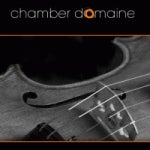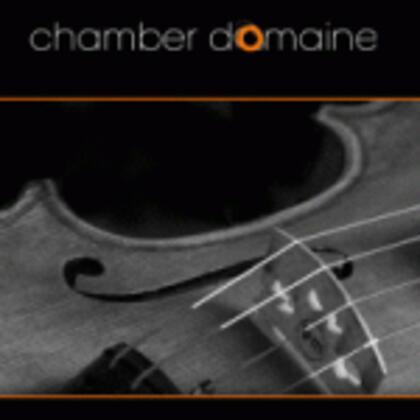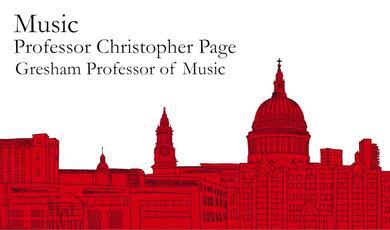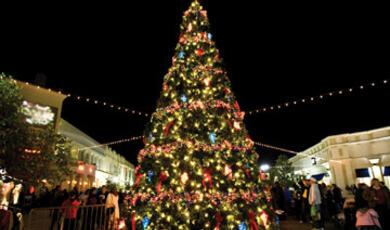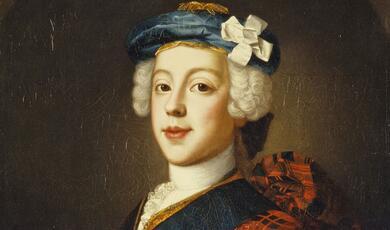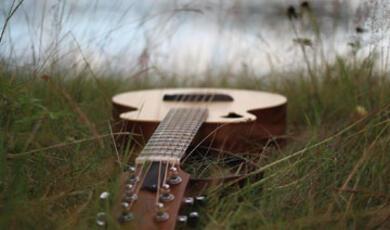Music from the Western Front
Share
- Details
- Text
- Audio
- Downloads
- Extra Reading
This concert focuses on composers who saw active service. It includes the Bliss Piano Quartet Op 5 which he wrote during the Battle of the Somme, as well an Ivor Gurney the premiere:
Sir Edward Elgar - Violin Sonata in E, Op. 82 (1918)
Allegro
Romance
Allegro non Troppo
Ivor Gurney - Slow Movement for violin and piano (Premiere) (1924)
Sir Arthur Bliss - Piano Quartet in A (1915)
Poco adagio e espressivo
Intermezzo: Tempo di Mazurka
Allegro Furioso
Part of the Made in Britain series of four lectures exploring British instrumental chamber music and song ranging from Bliss through to the music of today, giving a rare opportunity to experience chamber music in an intimate setting. Each concert will be preceded by a talk by Thomas Kemp, Director of Chamber Domaine.
Download Text
Music From The Western Front
Thomas Kemp
Good evening ladies and gentlemen and welcome to the first concert of 'Made in Britain'. Tonights concert features music by composers who were associated with the First World War.
By the time of the First World War the first composer, Sir Edward Elgar, was a very established figure in Britain. Something of the sentiment of Pomp and Circumstance was very much in vogue in 1914 when millions of people were called up and gladly signed up to the Army. Sir Edward Elgar was born in 1857, and he is a very interesting figure because British music in the Nineteenth Century was very much in the doldrums.
Elgar's early life reflected the kind of life that musicians had in the Nineteenth Century. He was one of seven children. His father owned a small music shop in Worcester, and he had virtually no formal training as a musician. He had some violin lessons and he was a fairly competent violinist, but he did not have any composition lessons. He left school at fourteen, and started to work as a clerk to a solicitor, as an apprentice. After a few years, he decided that he wanted to become a musician, and he started working in his local area, mainly teaching violin in local schools and conducting local choirs and orchestras.
By 1890, he had married his wife, who was the daughter of a general in the army, and she was from a much high class family. This was against her parents best wishes. Edward Elgar always felt very insecure, and this insecurity was particularly intensified in 1890 when him and his wife decided to move to London. He came here, completely unknown as a musician and as a composer, and he just could not get any work. He was here for a whole year, and no one would offer him any work. Not as a teacher, conductor or as a composer. So, with his tail between his legs, he went back to Worcester and just carried on doing what he had been doing before.
You would think for some people that would be enough - they would think, Oh well, I am not going to bother - but Edward Elgar was made of incredibly strong and determined stuff, and his music actually reflects both these sides, the strength and resolution of his character, and also the insecurity of his personality, because he was very much an outsider. He was also a Catholic, which did not help things in the Nineteenth Century. There was a lot of discrimination against Catholics in Britain. But it was that decade that really put him on the map. The decades before the First World War - the 1890s and the 1900s - saw a string of compositions that truly made him a well known figure, most notably, his famous Enigma Variations, the First and Second Symphonies, and the Violin Concerto, all of which are marvellous works.
As an artist, he found it very hard to write music to order, and he used to have these periods of depression where he could not write anything, and then he had suddenly have a creative burst and write a whole series of great works in very short succession. This is the case with the Violin Sonata. For most of the First World War, Elgar was living in London and he said that he was fed up with the telephone ringing, so his wife decided that they would rent a place in West Sussex. Staying in the country in 1917 and 1918 released a huge amount of creative energy in him and he wrote three great chamber works - the Violin Sonata, the String Quartet, and the Piano Quintet - in the space of a year, and then the Cello Concerto, which was the other work in this creative surge at the end of the First World War.
He also wrote some popular music during the First War for propaganda purposes. One of the pieces, which has church bells in it, is about one of the situations in Belgium, where some soldiers had been very brave, and this piece commemorated it. It was put on in the Hippodrome in London and was sold out for about three weeks, and people used to go and listen to this piece because it was a very stirring, patriotic piece.
However, the Violin Sonata is a much more introverted work in some ways. It plays on this great romantic tradition of Brahms and Wagner that had so much influenced Elgar's early music. Elgar actually as a violinist was very fortunate in a way, because there was a festival in Worcester (it is still going on, part of the Three Choirs Festival, which is a very famous festival of music between the three cathedral cities that are around Worcester), and Elgar actually performed Dvoraks symphonies with Dvorak conducting. So he was very familiar with Brahms, Dvorak, Wagner. This music, at the time, around the 1890s, was basically new music; some of it was only ten or fifteen years old. So he was very much steeped in this German romantic tradition, and this Violin Sonata, the first movement, sounds very much like Brahms. You will hear in the piano very Brahmsian harmonies, a very Brahmsian way of using the piano, and the violin is very much used as a passionate, melodic instrument.
When this piece was premiered in 1919 at the Wigmore Hall, with the other two chamber works, a critic wrote that this music was old-fashioned. The audience, according to Lady Elgar, went wild because they loved it because it had a decent tune, but by the end of the War, people were writing in a new style, and already stylistic changes had begun to emerge, not so much in the British music scene, but certainly in the Continental music scene in the period between 1900 and 1914. You have works such as the Rite of Spring by Stravinsky and Schoenbergs developments with tonality happening in Europe. Elgar was aware of these developments, but his music stayed away from anything that was new and fashionable. It is great music, but it is very much part of the Nineteenth Century tradition of music-making.
Interestingly, at the first play through of the Violin Sonata, the page turner was Arthur Bliss, the other composer in the programme.
Arthur Bliss is an interesting character. He was born in 1891. His father was a very rich American. His wife is 104 and is still alive and lives in Holland Park. He, like Elgar, went on to become Master of the Queens Music. He was a very distinguished figure. He met Elgar in 1912, and the two remained friends for the rest of Elgar's life - Elgar died in 1934.
It is quite a touching story. In a way, Bliss was the opposite of Elgar. He went to Rugby School then he went to Cambridge, and he joined the Grenadier Guards in the First War. He was a very distinguished officer, he won a medal, he was in the Battle of the Somme and was wounded. He kept in touch with Elgar throughout the War. On the first day of the Somme, he received a little parcel of Elgar's Cockaigne Overture, and this printed score with Elgar's signature on it is covered in mud to this day, where Bliss had it in his pocket during the battle.
The Piano Quartet that we are playing tonight, we were lucky to give the first modern performance. This is because at the end of his life Bliss decided that he did not want the work that he had written as a soldier to be performed in his lifetime. This piece actually was premiered here in London in 1915 at a benefit concert for war veterans and for injured soldiers and Lady Elgar was in the audience. This particular Piano Quartet sounds very much like the music of Vaughan Williams. You can hear the influence of Elgar and the German romantics, but there's also a kind of French influence. Some of the harmonies would not be out of place in Ravel or Debussy chamber or piano music. It is a beautiful piece, and it was written while he was leading the troops at the front in 1915. If you listen to this piece, you would not guess that that was his kind of environment. It is a very pastoral piece, it is very nostalgic, it is quite peaceful, and actually it is very good humoured, particular the intermezzo movement. So it is an interesting piece from that perspective.
Bliss, after the First War, came back to London, completed his studies at the Royal College of Music, and in 1920, he became one of the 'bad boys' of British contemporary music, writing experimental music, jazz influenced music, along with Walton, who was the other enfant terrible of the 1920s. Both of them actually became much more conservative with age, and Bliss' music becomes much more conservative during the course of his life, in the 1930s and '40s. But he is an interesting composer, and often neglected. There is a lot of interesting music that he wrote, particularly for the ballet, and also he wrote the music for the first British film with music, which was by Korda, 'Things to Come', which is an HG Wells story, which is a classic actually, and also the ballet 'Checkmate'.
Bliss knew Elgar very well. They wrote to each other. Just to give you an idea of his situation during the War, he was incredibly patriotic and brave. When you talk to people that met him in the '60s and '70s, they said, 'You were terrified of him because it was like dealing with a major from the army.' If he was in on a committee, he always was very stentorian in his views - very precise and correct.
He actually wrote an autobiography, which is one of the classics of Twentieth Century music. It is a great book to read. One of the touching things in the book is a letter that he wrote to his brother on the first day of the Battle of the Somme, and it is typical of Bliss's character. It says: 'Dear Kennard, Imagine Hampstead Heath on a Bank Holiday Monday painted by a maniac!' That was his description of the first day of the Battle. So he still had a sense of humour, although he was obviously going through a lot of problems and clearly it was a difficult time.
Ivor Gurney, the other composer in our programme, is a brilliant man who really suffered. It is a very touching and sad story. He had the same teacher as Arthur Bliss at the Royal College - Stanford - and he said that Gurney was the most brilliant of all of his pupils, and bearing in mind Stanford taught a lot of the Twentieth Century British composers, including Herbert Howells and Walton, so there was a big thing at the Royal College. There's lots of British composers that went through that system, but Stanford reckoned that Gurney was the most creative.
He wrote a huge number of songs - I think it is something like 500 songs. Many of them are unpublished, and some of them do not really make very much sense, but some of them are absolute masterpieces. There is also a lot of chamber music that he wrote which has never really been performed. It is all sitting in a box in Gloucester City Library, in an archive.
This particular piece that we are playing tonight dates from 1924. He suffered from shell shock and he was gassed in 1917. He came out of the Army, and he went into hospital, and then into a mental hospital. He then went back to the Royal College for a couple of years, and then went back to Gloucester, where he was from, very close to where Elgar lived and worked in Worcester, but he could not find any work. He had a total breakdown, and his family put him into a mental hospital. He ended up being transferred, in 1920, to the City of London Mental Hospital, which is in Dartford, and he died there in 1937 of tuberculosis.
I am actually playing off a photocopy of his 1924 manuscript, and it is written in impeccably neat writing. The music seemed to just flow from his pen. It is not something that he spent days and days chewing over and crossing out and re-writing. It is something that just literally flowed out of his pen. But on the last page it says, 'I am in agony' at the bottom. So it is a very touching and sad story about him.
But, what we hear in this music, which is great, is again in Gurney's music this influence of Brahms and the German romantics, the influence of Elgar. This music is part of that kind of tradition and part of the pastoral tradition, which of course Vaughan Williams was a big part of.
Vaughan Williams is an interesting composer because he was too old to be in the army - he was 44 at the time of the outset of the First War - but he was so patriotic he tried and tried, and in the end, they made him an offer of working as an ambulance driver, and then he organised music making amongst the troops in 1918. Vaughan Williams was a great collector of folk songs, and this influence of folk song actually can be heard in the Bliss as well, but in Elgar's music, you cannot really hear it. But I think, what Elgar's music is the equivalent to is the Constable of Suffolk. Constable captures Suffolk in a way that no one else can capture - the paintings capture an era of English history in a way that is incredible. Elgar's music captures an era of British countryside and life that in a way is incredible, and what is so interesting about this period is, by 1919, people were no longer interested in it because it basically had spelt disaster for millions of people in Europe.
In our next programme, we are going to have a very light piece, a great piece, William Walton's Façade. This was a piece that was premiered in 1920. This gives a perfect example of how quickly the musical scene changed, between the pieces we are playing tonight and the pieces that came immediately after the First War. People very much felt that they needed to have a change of life, a change of scene. The social and economic and cultural world that existed before the First World War was over, and these pieces represent basically the end of an era that runs right the way back into the middle of the Nineteenth Century.
So I very much hope you enjoy the concert.
©Thomas Kemp, Gresham College, 26 September 2007
This event was on Wed, 26 Sep 2007
Support Gresham
Gresham College has offered an outstanding education to the public free of charge for over 400 years. Today, Gresham College plays an important role in fostering a love of learning and a greater understanding of ourselves and the world around us. Your donation will help to widen our reach and to broaden our audience, allowing more people to benefit from a high-quality education from some of the brightest minds.


 Login
Login
